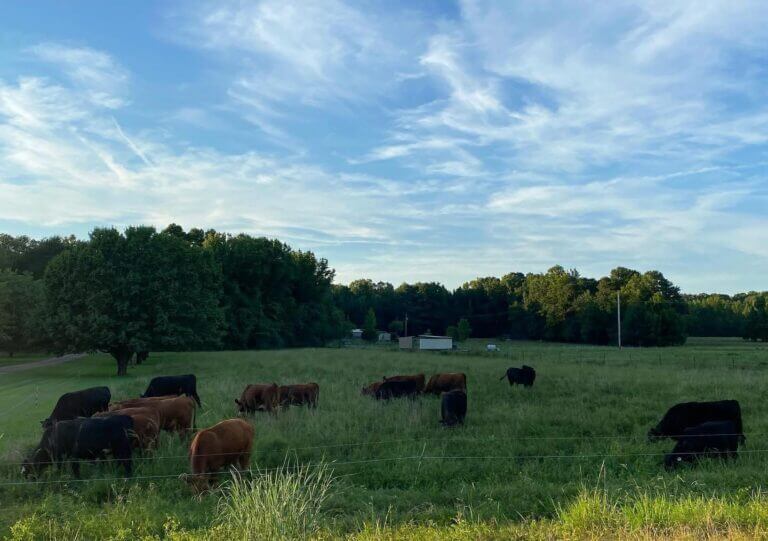

In the small, rural town of Taylor, eight miles south of Oxford, residents are debating a proposed asphalt plant that would include rezoning land from agricultural to heavy industrial usage.
The Lafayette County Board of Supervisors will decide whether to approve the change on Monday. The county’s planning commission voted 3-1 last month to move forward with the proposal.
Residents have come together over concerns about the precedent the rezoning would set, potential air emissions and water run off, and how the plant would affect the bucolic nature of the town of about 300 people.
“We’re worried about pollution and how it’ll affect our health,” said Melissa Roberson, a Taylor resident.
The September planning commission meeting saw a large turnout, with most voicing objections to the plant proposal. Many came in support of Falkner Farms, a grass-fed beef and egg producer that supplies markets in the area.
The family-owned farm sits across a two-lane highway from the proposed asphalt site. Reed Falkner, whose parents bought the land in 1996 to raise their family, is worried the plant would disturb their business. Too much noise, for instance, could cause chickens to produce fewer eggs, he said.

“There’s the potential to put us out of business,” Falkner said. “ This decision (from the county) has a lot of weight. It’s sending a much larger message than asphalt over agriculture. It’s the precedent they’re setting.”
J.W. McCurdy, the developer and owner of the land where the asphalt plant will be built, has lived in Lafayette County since he was 3 years old.
“I’ve lived here virtually my entire life,” McCurdy said. “I care about the success of Lafayette County as much as anybody in the world. I mean, I’m probably going to die here.”
Between new subdivisions and paving roads, the county has a high demand for asphalt, Joel Hollowell, the county’s director of development services, said. He also pointed to an upcoming project, starting in March, to add new lanes to parts of Mississippi Highway 7.
“We’ve survived a lot of years without competition (in the asphalt market),” Hollowell said. “Could we survive longer? Probably so, but competition tends to create a more affordable product.”
McCurdy and other local developers said the area has only one asphalt provider, which has long lines and isn’t always open when it’s needed. That’s why a new plant could help make it easier and cheaper to build around Oxford, McCurdy said.
“ I’m trying to better our community and make things more affordable for people to be able to buy houses, rent houses, build restaurants or whatever it may be,” McCurdy said.
Regarding concerns over emissions and runoff, such as into the nearby Yocona River, Hollowell said the Mississippi Department of Environmental Quality would have to approve any water runoff or air emissions before the plant could open.
In 2022, MDEQ cited McCurdy for violating rules around sediment runoff at a construction site in Oxford. The developer told Mississippi Today the error was quickly fixed, describing it as a “misperformance by a subcontractor.”
For nearby residents, though, the decision before the county isn’t just about the asphalt plant. It’s about preserving the area’s identity in the face of growing development and constant expansion around Oxford. This issue is especially acute amid local struggles with rising housing costs, as The Daily Mississippian wrote about a year ago.
“This kind of fight is a familiar growing pain in counties that are transitioning from rural to suburban,” said Ellen Meacham, a longtime resident of Taylor who saw similar fights in DeSoto County during the late 1990s.
- State fire marshal is investigating troubled Unit 29 at Parchman prison - February 26, 2026
- Mississippi’s Winter Storm Fern losses exceed $107 million, state insurance department says - February 26, 2026
- DNA evidence linked to a Greenville homicide is missing. Now the finger-pointing begins - February 26, 2026